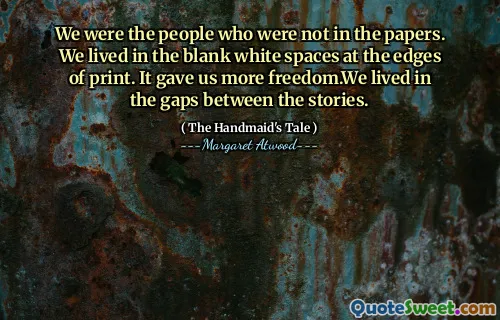
We are two-legged wombs, that's all: sacred vessels, ambulatory chalices.
In "The Handmaid's Tale," Margaret Atwood explores the dehumanization of women in a dystopian society where their primary role is reduced to that of childbearing vessels. The quote, "We are two-legged wombs, that's all: sacred vessels, ambulatory chalices," underscores this theme by portraying women as mere containers for reproduction rather than as individuals with their own identities and desires. This perspective reflects the oppressive nature of the regime, where women's worth is solely tied to their ability to produce offspring.
This reduction of women to their biological functions illustrates the broader commentary on gender and power dynamics. Atwood criticizes a society that objectifies women and strips them of autonomy. The imagery of "sacred vessels" and "ambulatory chalices" evokes a sense of both reverence and objectification, highlighting the tragic irony of their circumstances. Through this lens, the novel challenges readers to recognize and resist the forces that seek to diminish women's roles to mere physical biology in both literature and society.






